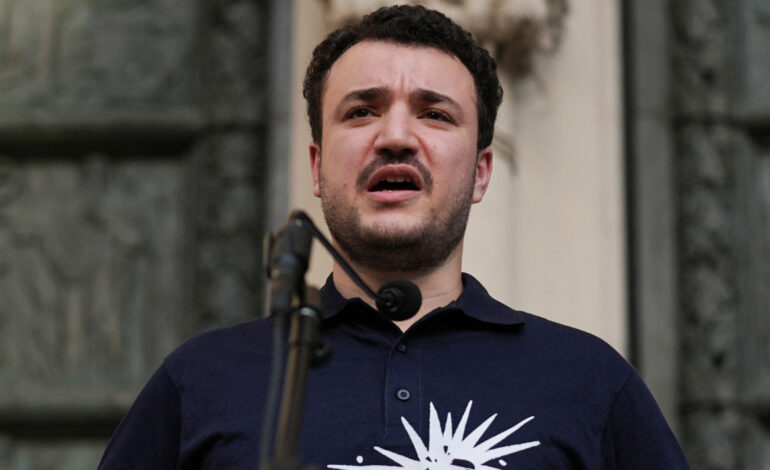Columbia University Activist Mahmoud Khalil Sparks Controversy Over Hamas

UPDATE: Columbia University activist Mahmoud Khalil has ignited fierce backlash after controversial comments regarding the “pro-Palestine” movement and its stance on the recent violence involving Hamas. In an interview with Ezra Klein of the New York Times, Khalil suggested that the October 7, 2023, attacks by Hamas were a necessary response to a looming peace agreement between Israel and Saudi Arabia.
Khalil’s remarks imply that the brutal assault, which resulted in the deaths of over 1,200 people and the abduction of approximately 250 individuals, was a morally justified action to disrupt what he termed an exclusionary peace process. He stated that this violence was a “desperate attempt” to “break the cycle” of normalization that sidelined the Palestinian narrative.
The activist’s comments have drawn intense scrutiny as he openly aligned himself with Hamas, framing the terror group’s actions as a necessary evil. Khalil lamented that Israel and Saudi Arabia’s potential diplomatic ties could occur “as if Palestinians are not part of the equation.” His statement raises urgent questions about the implications of such rhetoric on the already volatile situation in the region.
Observers are concerned that Khalil’s views could fuel further violence and misunderstandings regarding the complexities of the Israeli-Palestinian conflict. The notion that freedom for Gaza is contingent upon violent actions perpetuates a cycle of suffering, undermining prospects for peace.
In light of these developments, many are calling for a reevaluation of how the “pro-Palestine” movement is perceived and its impact on the broader discourse surrounding peace efforts in the Middle East. Analysts argue that the path to stability for Palestinians lies in diplomatic engagement rather than violent resistance.
As tensions rise, Khalil’s comments could have far-reaching consequences, not only for the Palestinian community but also for international perceptions of the conflict. The urgency of these discussions is palpable, as the world watches to see how this narrative will shape future dialogues around peace in the region.
The fallout from Khalil’s remarks continues to unfold, with many calling for accountability among those who promote violence as a solution. The international community is urged to focus on constructive dialogue and solutions that prioritize human rights and peace for all parties involved.
Stay tuned for more updates on this developing story as reactions pour in from various sectors and communities across the globe.






